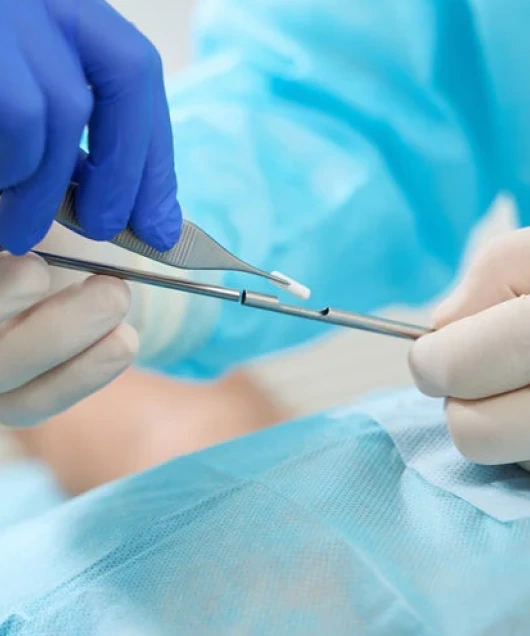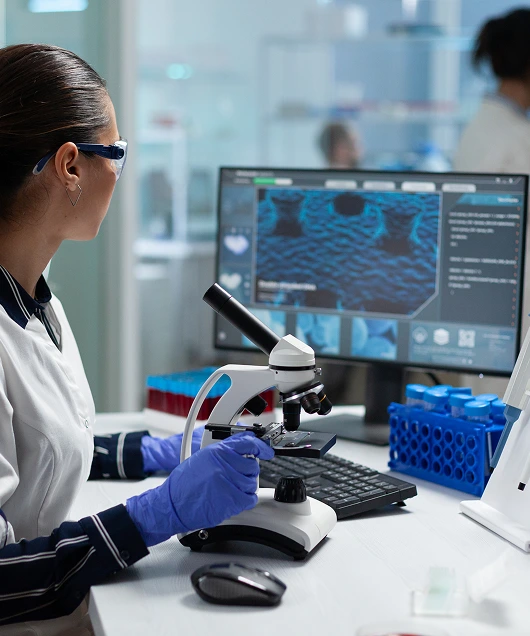Hormone Optimization
Symptoms of low testosterone and metabolic slowdown are common—and multifactorial. We confirm with labs, review fertility plans, and build a plan that may include TRT, pellets, nutrition, and monitoring. Safety comes first.
Male Fertility Clinic in Houston, Texas
The Y Factor is a men's wellness clinic that provides expert-led services
for male fertility in Houston, allowing you to create a unified plan for your family's future.
What Is a Fertility Specialist for Men?
A fertility specialist for men is a doctor focused on diagnosing and treating issues that make it challenging for men to have children. At The Y Factor, our board-certified urologists bring advanced training in men’s reproductive health.
Our approach looks deeper to find the reasons behind fertility issues. We then work with couples, providing personalized treatment plans designed to increase the chance of pregnancy by natural conception or in vitro fertilization (IVF) by improving male fertility factors.

How The Y Factor Can Help
Advances in reproductive medicine in recent years have brought new hope to couples.
Whether you've been struggling for some time to start a family or recently taken a test showing you can't conceive naturally, The Y Factor can help.
Our testing and fertility treatments in Houston make it easy to get the answers and support you deserve.
.webp)
Fertility Evaluation
Your journey toward parenthood begins with a complete evaluation that helps us pinpoint the cause of fertility challenges. Your assessment will include:
- Physical exam: We'll check you for anything physical that could affect your fertility, such as swelling, lumps or varicocele veins.
- Semen analysis: We provide semen analysis kits. By measuring samples, we gain vital information on the number, movement and shape of your sperm to get a clear picture of your fertility potential.
- Semen culture: Specialized tests can detect hidden infections that impact male fertility.
- Imaging: Techniques like ultrasound look for blockages or structural problems in the reproductive tract.
Personalized Treatment
Once we know what’s going on, our team creates a treatment plan designed just for you. Our focus is on fixing the root cause of your fertility issues to help increase your chances of conceiving naturally.
We look for underlying causes that can be corrected, like:
- Hormone imbalances
- Infections
- Varicoceles
Our treatments are based on the latest reproductive urology research. Whenever possible, we use simple, minimally invasive solutions with shorter recovery times and a lower risk of complications.
.png)
.webp)
Coordinated Care
The path to parenthood takes teamwork. That’s why we partner with various reproductive endocrinology clinics in Houston to help boost your chances with IVF or artificial insemination. Our coordinated care means every step is optimized for success, including:
- Specialized sperm testing: We offer advanced sperm testing in Houston to make sure your sperm has the best motility and quality before any fertility procedure.
- Sperm retrieval: For men with zero sperm count, we can collect sperm directly and coordinate with your IVF clinic care team to faciliate next steps giving you and your partner more options and peace of mind.
Schedule a Consultation
to Take Your First Step Toward
If you're looking for expert male fertility care, turn to The Y Factor. Our urologist-led team specializes
in root-cause diagnosis and treatment options that can help put you and your partner on the path to parenthood.
No long waits or unnecessary delays. We offer flexible appointment options so you can be seen
quickly by our Houston fertility specialists. Contact us online or call 832-358-8600 to learn more.
We proudly partner with Progyny in Houston to ensure our patients make the most of their fertility benefits.
We also accept all major insurance plans as well as Care Credit.
Restore Your Well-being
Measured, medically supervised care to improve energy, body composition, and libido.
What our patients says

Dr. Williams was amazing! As someone who tends to freak out about getting blood drawn, I was honestly pretty freaked out by the time the procedure rolled around. Dr. Williams was very thorough with what he did. Offered to re-explain everything if I’d liked. He carried the conversation very well and was very quick and efficient! The pain was extremely minimal. I’d say pain level was 0-1. I was so happy that it went so well and that it was nothing like how I thought. I definitely recommend anyone looking to get a vasectomy to pay Dr. Williams a visit!

Procedure was fast and professional. The anxiety beforehand was the worst part but was over before I knew it.

Several years that he had not been doing routine monitoring, they pay close attention to the patient, indicate laboratory tests or images necessary for a correct diagnosis. The staff is very friendly and attentive to the questions. They know what they do.

My wife and I had been trying for a baby for over 3 years before finding this place. They had diagnosed me with male infertility within 2 weeks and immediately started me on treatments to boost my testosterone levels. The next month, my wife was pregnant! We will forever be grateful for giving us the chance to be parents! When we were ready to try for baby #2, I immediately started treatments again and my wife was pregnant within 2 months!
.jpg)
Select Your Men's Health Specialist, Book Instantly
Find expert urologists and men's health professionals who understand your unique needs.
Our streamlined platform helps you connect quickly and confidentially.
Personalized Treatment Plans
Receive tailored recommendations and therapies specifically designed to address your individual health needs.
Ongoing Support & Follow-up
Benefit from continuous care, including regular progress reviews and expert guidance throughout your wellness journey.
Frequently Asked Questions
What can I do to get started?
Take the Men’s Health Quiz found on this website. If the questions you answered affect your health in any way, call us at The Y Factor or make an appointment online and our specialists will evaluate your urological health and start a specialized treatment plan specifically for you.
Why does The Y Factor specialize in men’s health?
The Y Factor was named for the Y-chromosome, the factor that determines male characteristics. Our facilities were created by men, for men, with the expertise of male urological health. Our team believes in finding the underlying source of men’s health problems so they can customize a specific treatment plan to improve current health issues along with one’s overall quality of life.
Why is seeing a urologist so important to men’s health?
Too many men are dying in their 50s and 60s from urological disorders that could have been prevented in their 30s and 40s. Rapid advances and medical discoveries have been occurring in this field but are often concentrated in academic centers. Our specialists bring these advances to communities in which men live and work.
Are the treatments/surgeries at The Y Factor painful?
We take all precautions to ensure you are in as little pain as possible. Many of our patients have reported low pain levels, around 1-2 on a scale of 10.
Yes, we accept all major insurance plans:
At The Y Factor, we realize that medical care can be expensive. In an attempt to help you – our patients,
we can also work with the “Out of Network” benefits of most health insurance plans, and we accept Care Credit.

.png)

.webp)


.jpg)